Chiropractic Care
What is chiropractic care?
Chiropractic care is a specialized healthcare discipline that focuses on the diagnosis, treatment, and prevention of musculoskeletal conditions, particularly those affecting the spine. Chiropractors employ a hands-on, non-invasive approach to promote natural healing and overall wellness. With its holistic and patient-centered approach, chiropractic care seeks to address the underlying causes of conditions rather than merely treating the symptoms, promoting overall wellness and a higher quality of life.

How can chiropractic care help?
Chiropractic adjustments and therapies can help alleviate acute and chronic pain in the musculoskeletal system. Whether it's neck pain, back pain, headaches, or joint discomfort, chiropractors use targeted techniques to address the underlying causes of pain and restore proper alignment. By re-aligning the spine and other joints, reducing inflammation, and relieving tension in muscles and soft tissues, chiropractic care can provide significant pain relief and improve overall mobility and functionality.
Also, by enhancing the nervous system's communication with the body's organs, tissues, and cells through the spinal adjustments, chiropractic care can positively impact various aspects of health, including immune function, digestion, sleep patterns, and energy levels. Chiropractors also emphasize patient education and preventive measures by providing guidance on posture, ergonomics, exercise, and lifestyle modifications to support long-term health and prevent future issues.
Furthermore, chiropractic care is not limited to pain management but also plays a crucial role in preventive care and maintaining optimal health. Regular chiropractic adjustments and ongoing care have been shown to help prevent the recurrence of pain and injuries, enhance athletic performance, and promote overall wellness. Additionally, the personalized approach of chiropractic care, tailored to the specific needs of each patient, allows for individualized treatment plans that can yield significant and long-lasting results.
Also, by enhancing the nervous system's communication with the body's organs, tissues, and cells through the spinal adjustments, chiropractic care can positively impact various aspects of health, including immune function, digestion, sleep patterns, and energy levels. Chiropractors also emphasize patient education and preventive measures by providing guidance on posture, ergonomics, exercise, and lifestyle modifications to support long-term health and prevent future issues.
Furthermore, chiropractic care is not limited to pain management but also plays a crucial role in preventive care and maintaining optimal health. Regular chiropractic adjustments and ongoing care have been shown to help prevent the recurrence of pain and injuries, enhance athletic performance, and promote overall wellness. Additionally, the personalized approach of chiropractic care, tailored to the specific needs of each patient, allows for individualized treatment plans that can yield significant and long-lasting results.
Here are several conditions that chiropractic care has shown to be beneficial for:
Back and Neck Pain:
Chiropractic care is renowned for its effectiveness in treating back and neck pain. Whether caused by poor posture, muscle strain, herniated discs, or spinal misalignments, chiropractic adjustments can help alleviate pain, reduce inflammation, restore mobility, and improve overall spinal health.
Headaches and Migraines:
Chiropractic care has been found to be effective in managing tension headaches, migraines, and cervicogenic headaches. By addressing spinal misalignments and reducing tension in the neck and shoulders, chiropractic adjustments can provide relief and decrease the frequency and severity of headache episodes.
Joint Pain and Arthritis:
Chiropractic care can be beneficial for individuals experiencing joint pain and stiffness due to conditions such as osteoarthritis or rheumatoid arthritis. Chiropractic adjustments, along with other modalities like ultrasound and therapeutic exercises, can help reduce pain, improve joint mobility, and enhance overall quality of life.
Whiplash and Auto Accident Injuries:
Whiplash, a common injury resulting from car accidents, can cause neck pain, headaches, and restricted movement. Chiropractic care can play a vital role in the rehabilitation process by addressing spinal misalignments, reducing inflammation, and promoting tissue healing.
Slip and Fall Injuries:
Slip and fall accidents can result in various injuries, including sprains, strains, fractures, and soft tissue damage. Chiropractic care can help with realigning the spine and joints, reducing pain, and promoting healing. Physical therapy can assist in the recovery process by incorporating balance training, gait retraining, strengthening exercises, and functional movements to improve mobility, stability, and overall physical function.
Work-Related Injuries:
Work-related injuries can include repetitive strain injuries, back injuries from heavy lifting or improper ergonomics, and slip and fall accidents. Chiropractic care can address spinal misalignments, alleviate pain, and improve mobility. Physical therapy can focus on functional rehabilitation, providing exercises, manual therapy, and ergonomic assessments to enhance strength, restore proper movement patterns, and facilitate a safe return to work.
Sports Injuries:
Chiropractors play a crucial role in managing and rehabilitating sports-related injuries. They can provide comprehensive care, including manual adjustments, soft tissue therapies, and rehabilitative exercises, to promote healing, restore functionality, and prevent future injuries.
Pregnancy-Related Pain:
Chiropractic care is frequently sought by pregnant individuals to manage discomfort associated with pregnancy, such as back pain, pelvic pain, and sciatica. Gentle and specialized techniques can provide safe and effective relief, promoting a more comfortable pregnancy experience.
Sciatica:
Sciatica refers to pain radiating along the sciatic nerve, often caused by a herniated disc or spinal stenosis. Chiropractic adjustments can alleviate pressure on the sciatic nerve, reduce inflammation, and improve nerve function, leading to pain relief and enhanced mobility.
Posture-related Issues:
With the prevalence of sedentary lifestyles and desk jobs, poor posture has become a common concern. Chiropractic care can address postural imbalances, provide guidance on ergonomics and exercises, and help individuals improve their posture, leading to reduced pain and improved overall well-being.
"Honestly one of the most soothing treatment experiences.. The entire staff here is super caring, kind hearted, and mindful in their practice. Sincere appreciation to the USC team for helping me through my healing journey.
I can now say I enjoy going to the Doctor’s office lol."
Physiotherapy
What is Physiotherapy?
Physiotherapy treatment focuses on optimizing physical function, mobility, and overall well-being. It involves the assessment, diagnosis, and treatment of various conditions and injuries affecting the musculoskeletal, neurological, and cardiovascular systems. Physiotherapists are highly trained healthcare professionals who utilize evidence-based techniques and interventions to help individuals recover from injuries, manage chronic conditions, and improve their physical abilities. The primary goal of physiotherapy is to enhance and restore functional movement, alleviate pain, and promote overall physical health
– READ MORE
Physiotherapists utilize a variety of treatment modalities, including manual therapy, therapeutic exercises, electrotherapy, heat and cold therapy, and hydrotherapy. These interventions are tailored to meet the specific needs of each individual and are aimed at improving strength, flexibility, endurance, balance, and coordination. Physiotherapy can be beneficial for a wide range of conditions, including musculoskeletal injuries, neurological disorders, sports injuries, chronic pain and post-operative rehabilitation.
– READ LESS

Post-Operative Rehabilitation
At United Spine Care, we provide comprehensive care and support for post-operative rehabilitation. We understand that undergoing surgery is a significant event, and our team of skilled professionals is here to help individuals recover and regain their optimal physical function. Post-operative rehabilitation plays a crucial role in the healing process after surgery. It aims to promote proper healing, reduce pain and inflammation, restore range of motion, and rebuild strength and endurance. Our chiropractors and physiotherapists work together to create personalized treatment plans tailored to the specific needs of each patient.
Our skilled physiotherapists utilize a variety of techniques to target specific areas affected by the surgery. They guide patients through a progressive rehabilitation program. Physiotherapy sessions also incorporate education on proper body mechanics and techniques for preventing re-injury.
Our skilled physiotherapists utilize a variety of techniques to target specific areas affected by the surgery. They guide patients through a progressive rehabilitation program. Physiotherapy sessions also incorporate education on proper body mechanics and techniques for preventing re-injury.
Below are some of the common post-operative treatments that are being utilized at our facility:
Therapeutic Exercises:
Customized exercise programs are an integral part of post-operative rehabilitation. Our therapists design specific exercises to improve range of motion, strengthen muscles, enhance stability, and restore functional abilities. These exercises may include stretching, strengthening, balance, and coordination exercises, depending on the surgical procedure and the patient's condition.
Manual Therapy:
Our skilled physical therapist aids employ various manual therapy techniques to address soft tissue restrictions, improve joint mobility, and reduce pain. These techniques may include joint mobilization, soft tissue mobilization, myofascial release, and massage therapy. Manual therapy helps to promote tissue healing, reduce scar tissue formation, and enhance overall function.
Electrical Stimulation:
Electrical stimulation is a common modality used in post-operative rehabilitation. It involves the application of low-level electrical currents to stimulate muscles, reduce pain, and promote muscle contraction and healing. Electrical stimulation can help manage pain, improve muscle strength, and prevent muscle atrophy during the recovery process.
Heat and Cold Therapy:
Chiropractic care has been found to be effective in managing tension headaches, migraines, and cervicogenic headaches. By addressing spinal misalignments and reducing tension in the neck and shoulders, chiropractic adjustments can provide relief and decrease the frequency and severity of headache episodes.
Gait Training:
Gait training is essential for individuals who have undergone lower limb surgeries or joint replacements. Our therapists work with patients to improve their walking patterns, stride length, balance, and overall functional mobility. Gait training helps individuals regain their ability to walk confidently and safely after surgery.
Patient Education:
Patient education plays a vital role in post-operative rehabilitation. Our team provides guidance on proper body mechanics, postural awareness, ergonomic modifications, and strategies for preventing re-injury. Education empowers patients to take an active role in their recovery, make lifestyle modifications, and prevent future complications.
Our Commitment
non-invasive Treatment
It is important to note that the benefits of chiropractic adjustments can vary from person to person, and individual results may differ. Consulting with a qualified chiropractor can help determine the most appropriate treatment plan based on individual needs and health goals.


